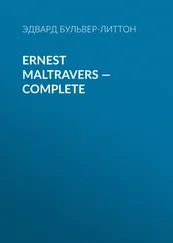Эдвард Бульвер-Литтон - Eugene Aram — Complete
Здесь есть возможность читать онлайн «Эдвард Бульвер-Литтон - Eugene Aram — Complete» — ознакомительный отрывок электронной книги совершенно бесплатно, а после прочтения отрывка купить полную версию. В некоторых случаях можно слушать аудио, скачать через торрент в формате fb2 и присутствует краткое содержание. Жанр: foreign_prose, literature_19, Европейская старинная литература, foreign_antique, на английском языке. Описание произведения, (предисловие) а так же отзывы посетителей доступны на портале библиотеки ЛибКат.
- Название:Eugene Aram — Complete
- Автор:
- Жанр:
- Год:неизвестен
- ISBN:нет данных
- Рейтинг книги:4 / 5. Голосов: 1
-
Избранное:Добавить в избранное
- Отзывы:
-
Ваша оценка:
- 80
- 1
- 2
- 3
- 4
- 5
Eugene Aram — Complete: краткое содержание, описание и аннотация
Предлагаем к чтению аннотацию, описание, краткое содержание или предисловие (зависит от того, что написал сам автор книги «Eugene Aram — Complete»). Если вы не нашли необходимую информацию о книге — напишите в комментариях, мы постараемся отыскать её.
Eugene Aram — Complete — читать онлайн ознакомительный отрывок
Ниже представлен текст книги, разбитый по страницам. Система сохранения места последней прочитанной страницы, позволяет с удобством читать онлайн бесплатно книгу «Eugene Aram — Complete», без необходимости каждый раз заново искать на чём Вы остановились. Поставьте закладку, и сможете в любой момент перейти на страницу, на которой закончили чтение.
Интервал:
Закладка:
In the centre of the village you chanced upon a cottage which had been lately white-washed, where a certain preciseness in the owner might be detected in the clipped hedge, and the exact and newly mended style by which you approached the habitation; herein dwelt the beau and bachelor of the village, somewhat antiquated it is true, but still an object of great attention and some hope to the elder damsels in the vicinity, and of a respectful popularity, that did not however prohibit a joke, to the younger part of the sisterhood. Jacob Bunting, so was this gentleman called, had been for many years in the king’s service, in which he had risen to the rank of corporal, and had saved and pinched together a certain small independence upon which he now rented his cottage and enjoyed his leisure. He had seen a good deal of the world, and profited in shrewdness by his experience; he had rubbed off, however, all superfluous devotion as he rubbed off his prejudices, and though he drank more often than any one else with the landlord of the Spotted Dog, he also quarrelled with him the oftenest, and testified the least forbearance at the publican’s segments of psalmody. Jacob was a tall, comely, and perpendicular personage; his threadbare coat was scrupulously brushed, and his hair punctiliously plastered at the sides into two stiff obstinate-looking curls, and at the top into what he was pleased to call a feather, though it was much more like a tile. His conversation had in it something peculiar; generally it assumed a quick, short, abrupt turn, that, retrenching all superfluities of pronoun and conjunction, and marching at once upon the meaning of the sentence, had in it a military and Spartan significance, which betrayed how difficult it often is for a man to forget that he has been a corporal. Occasionally indeed, for where but in farces is the phraseology of the humorist always the same? he escaped into a more enlarged and christianlike method of dealing with the king’s English, but that was chiefly noticeable, when from conversation he launched himself into lecture, a luxury the worthy soldier loved greatly to indulge, for much had he seen and somewhat had he reflected; and valuing himself, which was odd in a corporal, more on his knowledge of the world than his knowledge even of war, he rarely missed any occasion of edifying a patient listener with the result of his observations.
After you had sauntered by the veteran’s door, beside which you generally, if the evening were fine, or he was not drinking with neighbour Dealtry—or taking his tea with gossip this or master that—or teaching some emulous urchins the broadsword exercise—or snaring trout in the stream—or, in short, otherwise engaged; beside which, I say, you not unfrequently beheld him sitting on a rude bench, and enjoying with half-shut eyes, crossed legs, but still unindulgently erect posture, the luxury of his pipe; you ventured over a little wooden bridge; beneath which, clear and shallow, ran the rivulet we have before honorably mentioned; and a walk of a few minutes brought you to a moderately sized and old-fashioned mansion—the manor-house of the parish. It stood at the very foot of the hill; behind, a rich, ancient, and hanging wood, brought into relief—the exceeding freshness and verdure of the patch of green meadow immediately in front. On one side, the garden was bounded by the village churchyard, with its simple mounds, and its few scattered and humble tombs. The church was of great antiquity; and it was only in one point of view that you caught more than a glimpse of its grey tower and graceful spire, so thickly and so darkly grouped the yew tree and the larch around the edifice. Opposite the gate by which you gained the house, the view was not extended, but rich with wood and pasture, backed by a hill, which; less verdant than its fellows, was covered with sheep: while you saw hard by the rivulet darkening and stealing away; till your sight, though not your ear, lost it among the woodland.
Trained up the embrowned paling on either side of the gate, were bushes of rustic fruit, and fruit and flowers (through plots of which green and winding alleys had been cut with no untasteful hand) testified by their thriving and healthful looks, the care bestowed upon them. The main boasts of the garden were, on one side, a huge horse-chesnut tree—the largest in the village; and on the other, an arbour covered without with honeysuckles, and tapestried within by moss. The house, a grey and quaint building of the time of James I. with stone copings and gable roof, could scarcely in these days have been deemed a fitting residence for the lord of the manor. Nearly the whole of the centre was occupied by the hall, in which the meals of the family were commonly held—only two other sitting-rooms of very moderate dimensions had been reserved by the architect for the convenience or ostentation of the proprietor. An ample porch jutted from the main building, and this was covered with ivy, as the windows were with jasmine and honeysuckle; while seats were ranged inside the porch covered with many a rude initial and long-past date.
The owner of this mansion bore the name of Rowland Lester. His forefathers, without pretending to high antiquity of family, had held the dignity of squires of Grassdale for some two centuries; and Rowland Lester was perhaps the first of the race who had stirred above fifty miles from the house in which each successive lord had received his birth, or the green churchyard in which was yet chronicled his death. The present proprietor was a man of cultivated tastes; and abilities, naturally not much above mediocrity, had been improved by travel as well as study. Himself and one younger brother had been early left masters of their fate and their several portions. The younger, Geoffrey, testified a roving and dissipated turn. Bold, licentious, extravagant, unprincipled,—his career soon outstripped the slender fortunes of a cadet in the family of a country squire. He was early thrown into difficulties, but, by some means or other they never seemed to overwhelm him; an unexpected turn—a lucky adventure—presented itself at the very moment when Fortune appeared the most utterly to have deserted him.
Among these more propitious fluctuations in the tide of affairs, was, at about the age of forty, a sudden marriage with a young lady of what might be termed (for Geoffrey Lester’s rank of life, and the rational expenses of that day) a very competent and respectable fortune. Unhappily, however, the lady was neither handsome in feature nor gentle in temper; and, after a few years of quarrel and contest, the faithless husband, one bright morning, having collected in his proper person whatever remained of their fortune, absconded from the conjugal hearth without either warning or farewell. He left nothing to his wife but his house, his debts, and his only child, a son. From that time to the present little had been known, though much had been conjectured, concerning the deserter. For the first few years they traced, however, so far of his fate as to learn that he had been seen once in India; and that previously he had been met in England by a relation, under the disguise of assumed names: a proof that whatever his occupations, they could scarcely be very respectable. But, of late, nothing whatsoever relating to the wanderer had transpired. By some he was imagined dead; by most he was forgotten. Those more immediately connected with him—his brother in especial, cherished a secret belief, that wherever Geoffrey Lester should chance to alight, the manner of alighting would (to use the significant and homely metaphor) be always on his legs; and coupling the wonted luck of the scapegrace with the fact of his having been seen in India, Rowland, in his heart, not only hoped, but fully expected, that the lost one would, some day or other, return home laden with the spoils of the East, and eager to shower upon his relatives, in recompense of long desertion,
Читать дальшеИнтервал:
Закладка:
Похожие книги на «Eugene Aram — Complete»
Представляем Вашему вниманию похожие книги на «Eugene Aram — Complete» списком для выбора. Мы отобрали схожую по названию и смыслу литературу в надежде предоставить читателям больше вариантов отыскать новые, интересные, ещё непрочитанные произведения.
Обсуждение, отзывы о книге «Eugene Aram — Complete» и просто собственные мнения читателей. Оставьте ваши комментарии, напишите, что Вы думаете о произведении, его смысле или главных героях. Укажите что конкретно понравилось, а что нет, и почему Вы так считаете.












